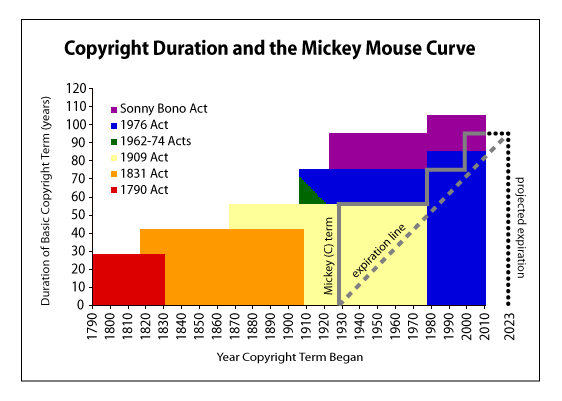As a recent Techdirt article noted, the European Commission was obliged to issue “guidance” on how to implement the infamous Article 17 upload filters required by the EU’s Copyright Directive. It delayed doing so, evidently hoping that the adviser to the EU’s top court, the Court of Justice of the European Union (CJEU), would release his opinion on Poland’s attempt to get Article 17 struck down before the European Commission revealed its one-sided advice. That little gambit failed when the Advocate General announced that he would publish his opinion after the deadline for the release of the guidance. The European Commission has finally provided its advisory document on Article 17 and, as expected, it contains a real stinker of an idea. The best analysis of what the Commission has done, and why it is so disgraceful comes from Julia Reda and Paul Keller on the Kluwer Copyright Blog. Although Article 17 effectively made upload filters mandatory, it also included some (weak) protections for users, to allow people to upload copyright material for legal uses such as memes, parody, criticism etc. without being blocked. The copyright industry naturally hates any protections for users, and has persuaded the European Commission to eviscerate them:
According to the final guidance, rightholders can easily circumvent the principle that automatic blocking should be limited to manifestly infringing uses by “earmarking” content the “unauthorised online availability of which could cause significant economic harm to them” when requesting the blocking of those works. Uploads that include protected content thus “earmarked” do not benefit from the ex-ante protections for likely legitimate uses. The guidance does not establish any qualitative or quantitative requirements for rightholders to earmark their content. The mechanism is not limited to specific types of works, categories of rightholders, release windows, or any other objective criteria that could limit the application of this loophole.
The requirements that copyright companies must meet are so weak that it is probably inevitable that they will claim most uploads “could cause significant economic harm”, and should therefore be earmarked. Here’s what happens then: before it can be posted online, every earmarked upload requires a “rapid” human review of whether it is infringing or not. Leaving aside the fact that it is very hard for legal judgements to be both “rapid” and correct, there’s also the problem that copyright companies will earmark millions of uploads (just look at DMCA notices), making it infeasible to carry out proper review. But the European Commission also says that if online platforms fail to carry out a human review of everything that is earmarked, and allow some unchecked items to be posted, they will lose their liability protection:
this means that service providers face the risk of losing the liability protections afforded to them by art. 17(4) unless they apply ex-ante human review to all uploads earmarked by rightholders as merely having the potential to “cause significant economic harm”. This imposes a heavy burden on platform operators. Under these conditions rational service providers will have to revert to automatically blocking all uploads containing earmarked content at upload. The scenario described in the guidance is therefore identical to an implementation without safeguards: Platforms have no other choice but to block every upload that contains parts of a work that rightholders have told them is highly valuable.
Thus the already unsatisfactory user rights contained in Article 17 are rendered null and void because of the impossibility of following the European Commission’s new guidance. That’s evidently the result of recent lobbying from the copyright companies, since none of this was present in previous drafts of the guidance. Not content with making obligatory the upload filters that they swore would not be required, copyright maximalists now want to take away what few protections remain for users, thus ensuring that practically all legal uses of copyright material — including memes — are likely to be automatically blocked.
The Kluwer Copyright blog post points out that this approach was not at all necessary. As Techdirt reported a couple of weeks ago, Germany has managed to come up with an implementation of Article 17 that preserves most user rights, even if it is by no means perfect. The European Commission, by contrast, has cravenly given what the copyright industry has demanded, and effectively stripped out those rights. But this cowardly move may backfire. Reda and Keller explain:
the Commission does not provide any justification or rationale why users’ fundamental rights do not apply in situations where rightholders claim that there is the potential for them to suffer significant economic harm. It’s hard to imagine that the CJEU will consider that the version of the guidance published today provides meaningful protection for users’ rights when it has to determine the compliance of the directive with fundamental rights [in the case brought by Poland]. The Commission appears to be acutely aware of this as well and so it has wisely included the following disclaimer in the introductory section of the guidance (emphasis ours):
“The judgment of the Court of Justice of the European Union in the case C-401/192 will have implications for the implementation by the Member States of Article 17 and for the guidance. The guidance may need to be reviewed following that judgment“.
In the end this may turn out to be the most meaningful sentence in the entire guidance.
It would be a fitting punishment for betraying the 450 million citizens the European Commission is supposed to serve, but rarely does, if this final overreach causes upload filters to be thrown out completely.


